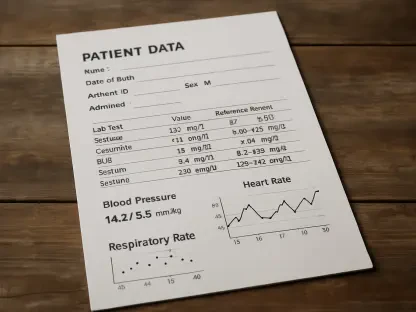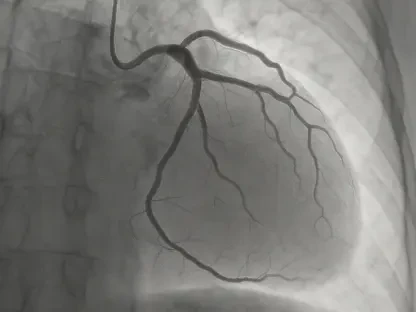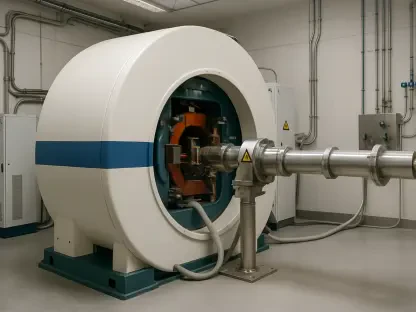Engaging in significant work that aims to fundamentally change the mechanics of decision-making, the Cognitive Performance (CoPe) Lab at Oklahoma State University, spearheaded by Dr. Pratima Saravanan, is making groundbreaking strides. Addressing high-pressure scenarios in sectors such as healthcare and emergency response, the lab’s work centers on improving attention, enhancing skill acquisition, and understanding stress responses. By translating theoretical research into practical tools, this initiative is setting new standards for professional performance under pressure while simultaneously advancing community health.
Virtual Reality in Firefighter Training
Training Simulation for Real-World Applications
The introduction of virtual reality-based training by CoPe Lab signifies a milestone in firefighter education. This immersive program recreates near-real conditions, enabling participants to hone their decision-making skills in simulated high-risk environments. The precision and realism of the scenarios are designed to heighten the user’s capability to react swiftly and accurately during emergencies, a component that is particularly critical when lives are at stake. Trainees can navigate through a variety of potential situations, which enhances their problem-solving abilities and mitigates the anxiety associated with the unpredictability of actual firefighting.
The use of such virtual technology also allows for tracking and evaluation of stress responses in trainees. By understanding the physiological and psychological effects of stress during these simulations, the lab seeks to identify coping mechanisms and optimize decision-making strategies. This dual focus on reactive skills and stress management aims not only to elevate the safety and efficiency of emergency personnel but also highlights a revolutionary approach within the training paradigms. Through this innovative methodology, the CoPe Lab is pioneering new ways to prepare firefighters and rescue teams for the demanding nature of their duties.
Embracing Realism for Enhanced Learning
By implementing advanced technologies, the CoPe Lab provides solutions that are integrated with cutting-edge engagement mechanisms. This transformative approach also ensures that responders remain well-prepared should any contingency arise unexpectedly. Enhanced realism in the virtual simulations fosters not only a more profound understanding of situational awareness but also develops an innate ability for intuitive problem-solving. This comprehensive approach considerably impacts how emergencies are conducted, solidifying the need for such methods in the modern training regimen.
Over time, as the program unfolds and gathers data, these virtual reality applications serve as a robust toolkit for developing policies that can be adapted across various emergency service departments. As instructors guide firefighters through these experiences, the adaptability of the technology enables continuous updates and improvements based on participant feedback and observed performance outcomes. By refining these simulations, CoPe Lab contributes substantially to advancements in emergency response training techniques aimed at increasing efficiency and ensuring preparedness.
Integrating AI in Engineering Education
Implications for Cognitive Skills Development
The influence of generative artificial intelligence (AI) on educational practices, particularly in engineering, is a significant focus of CoPe Lab’s research. By examining how AI tools affect students’ working memory and problem-solving capabilities, researchers are seeking to develop foundational insights that will guide policymaking within education. The shifting dynamics resulting from AI integration necessitate a deeper understanding of its effects on cognitive development, challenging educators to rethink traditional instructional approaches and adapt to these technological advances.
AI’s capacity to alter cognitive processing offers broad possibilities for enhancing educational outcomes, but it also requires careful balancing of its benefits and drawbacks. In educational settings, AI can facilitate personalized learning experiences and enable complex problem-solving scenarios that were previously unattainable. CoPe Lab’s pioneering research aims to measure these outcomes, thus providing empirical evidence for ministries and educational institutions as they consider incorporating AI into their curricula. This research contributes significantly to discussions on how AI may revolutionize, and possibly even redefine, the learning landscape in the near future.
Pioneering Frameworks for AI Policy
In its exploration, CoPe Lab seeks not merely to explore AI’s impact superficially but to shape structured frameworks that govern its educational integration. By evaluating the implications of AI tools on both academic performance and cognitive engagement, the lab’s findings serve as a foundation for evidence-based policy recommendations. These studies contribute to crafting innovative pedagogical models that embrace AI’s potential while addressing the philosophical and practical considerations of its deployment within educational systems.
CoPe Lab’s involvement in shaping AI policies underscores the necessity for multidisciplinary approaches when crafting robust educational standards that meet evolving technological demands. As institutions strive to balance innovation with tradition, the lab’s research offers a blueprint for harmonizing the two. By investigating AI’s role in enhancing cognitive functions, this initiative provides a visionary look into education’s future—a future where technology and human learning processes work synergistically towards achieving academic and practical excellence.
Enhancing Community Health Initiatives
Collaboration for Rural Health Optimization
The synergy between the CoPe Lab and the MAAX Lab in executing the “Stay Strong, Stay Healthy” program reflects a robust model for community-based healthcare. By focusing on resistance training and communal encouragement, the program is specifically targeted at improving the well-being of older adults in rural Oklahoma. Leveraging resources from the Rural Renewal Initiative and an InSPIRE grant, this partnership exemplifies CoPe Lab’s commitment to extending its research impact beyond academic boundaries into fields that directly influence community health metrics.
Interventions devised within this initiative aim to address the limitations faced by rural healthcare systems, including geographical isolation and limited access to specialized care. CoPe Lab’s collaborative efforts not only enhance physical health outcomes but also foster a sense of community among participants, ultimately contributing to sustainable healthcare delivery models. The ripple effect of such programs can potentially inform policy directives aimed at bolstering rural health support infrastructure while promoting resilience and long-term health benefits for these communities.
Innovation in Healthcare Delivery
The deployment of initiatives like community paramedicine echoes CoPe Lab’s drive for innovation in transforming healthcare practices. By integrating non-traditional healthcare models into existing systems, the lab showcases a forward-thinking approach to addressing systemic challenges in public health. Community paramedicine, for example, enables proactive healthcare through on-the-ground support by trained medical professionals who deliver essential services directly to residents. Such novel solutions represent a shift towards preventive healthcare practices, reducing dependency on hospital visits and enhancing patient outcomes.
Through these pioneering efforts, CoPe Lab illustrates the importance of applying research-driven strategies to achieve real-world improvements in healthcare services. As these programs are further refined and deployed, they hold the potential to serve as benchmarks for effective rural healthcare systems nationwide. The emphasis on collective partnerships and innovative service delivery places CoPe Lab at the forefront of advancing community health, aligning with targeted outcomes that prioritize inclusivity and accessibility across diverse population segments.
Bridging Research with Practice
Multidisciplinary Approaches for Comprehensive Solutions
The emphasis on multidisciplinary collaboration is a hallmark of CoPe Lab’s initiatives, recognizing that intricate challenges necessitate comprehensive solutions bridging academic inquiry and practical application. By uniting diverse fields of study and cultivating collaborations across sectors, the lab ensures its research contributes directly to societal advancement. These interdisciplinary endeavors enable the synthesis of knowledge, emerging technical forms, and insights that support the lab’s initiatives in cultivating practical improvements and theoretical advancements alike.
Students and faculty within CoPe Lab engage in rigorous analysis, utilizing cutting-edge methodologies such as machine learning and cognitive task analysis to dissect complex issues facets. This fosters an academic atmosphere in which students gain firsthand research experience, equipping them with the skills necessary for future endeavors. As budding researchers contribute to practical applications, they embody CoPe Lab’s mission of leveraging science to benefit society. Guided by Dr. Saravanan, these projects demonstrate a deep commitment to fostering environments rich with opportunity, application, and ethical scientific exploration.
Empowering Future Generation of Thinkers
The Cognitive Performance (CoPe) Lab at Oklahoma State University, led by Dr. Pratima Saravanan, is pioneering efforts to transform how decisions are made in high-stakes environments like healthcare and emergency services. The lab is dedicated to researching and improving how professionals manage attention, acquire vital skills, and respond to stressors when pressure is intense. By bridging theoretical insights with real-world applications, the CoPe Lab aims to enhance the way professionals perform under pressure. Their work is setting a benchmark for improving not only how jobs are executed in crucial fields but also contributing to the overall health of communities. Through this, they ensure that professionals in these demanding roles are more equipped to handle challenges effectively, thus promoting better outcomes. The lab essentially transforms academic research into actionable strategies that support people in critical decision-making roles, thereby enhancing their productivity and efficiency when it matters most.









